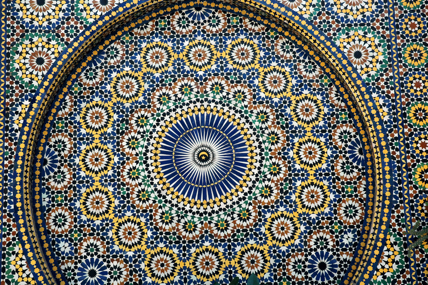My friend Maria Golia, author of the most excellent Cairo: City of Sand, has written a review essay on two recent books that deal, broadly speaking, with women and Islam. One is Ayaan Hirsi Ali’s popular and controversial The Caged Virgin: An Emancipation Proclamation for Women and Islam and the other is Shattering The Stereotypes: Muslim Women Speak Out, a compilation of writings by Muslim-American women edited by Fawzia Afzal-Khan. The review recently appeared in the august Times Literary Supplement, but is not available online. As always, click on the covers or links above to buy them on Amazon.com and we get a little baksheesh.


In 1992, the Somali-born author of The Caged Virgin, Ayaan Hirsi Ali, arrived in Holland as a refugee. She was granted citizenship in 1997, and six years later elected to parliament, where she focused on immigration policy. Hirsi Ali collaborated with Dutch filmmaker Theo Van Gogh, writing the screenplay for Submission 1, a film about women suffering from a repressive Islam. When Van Gogh was murdered by a Muslim in 2004, Hirsi Ali’s life was threatened and her celebrity enhanced. In 2005, TIME magazine named her one of the ‘world’s 100 most influential people’.
A photograph in the New York Review of Books (October 5, 2006) shows the attractive Hirsi Ali at a TIME-sponsored party chortling with fellow influential person, Condoleezza Rice. In the accompanying review, Timothy Garton Ash notes his ‘enormous respect for her courage, sincerity and clarity.’ The American Enterprise Institute (AEI), a think-tank close to the Bush Administration, apparently feels the same way. They made Hirsi Ali a fellow following her abrupt withdrawal from Dutch politics. Hirsi Ali’s resignation was owed in part to the controversy surrounding her falsification of personal data when requesting asylum, but also her opposition to Dutch tolerance and multiculturalism on the ground that it perpetuates ‘backwardness’, especially in Muslim immigrants.
‘[Muslim immigrants] only rarely take advantage of the opportunities offered in education and employment’ she writes in The Caged Virgin, and a restrictive Islam is what is holding them back. ‘By our Western standards, Mohammed is a perverse man. A tyrant. If you don’t do as he says, you will end up in hell. That reminds me of those megalomaniac rulers, Bin Laden, Khomeni, Saddam…..You are shocked to hear me say these things…you forget where I am from. I used to be a Muslim; I know what I’m talking about.”
This credential may have impressed the AEI, but it falls somewhat short when attempting to prosecute a religion and the multifarious peoples that profess it. It’s not that Hirsi Ali says outright that all Muslims are fundamentalists; she just attributes fundamentalist beliefs and practices to all Muslims.
Continue reading Review: Golia on Hirsi Ali and Afzal-Khan



 Yesterday Alaa Al Aswany’s new novel, “Chicago,” came out. There was an impressive crowd at the Dar El Shurouq bookstore at the First Mall in the Four Seasons Hotel in Giza. Ibrahim Eissa (editor of El Dustour, where the novel has been serialized in the last months–the last chapter comes out this Wednesday) and Galal Amin (the AUC professor and author of “Whatever Happened to the Egyptians?” series, who wrote the blurb on the back of the book) were there, as well as a lot of leftist-leaning writers and intellectuals. There was quite a press to get one’s book signed–TV crews kept interviewing Al Aswany during the signing (causing indignant protests from the queue) and I’m sorry to report that many semi-eminent personages cut shamelesslly to the front of the line.
Yesterday Alaa Al Aswany’s new novel, “Chicago,” came out. There was an impressive crowd at the Dar El Shurouq bookstore at the First Mall in the Four Seasons Hotel in Giza. Ibrahim Eissa (editor of El Dustour, where the novel has been serialized in the last months–the last chapter comes out this Wednesday) and Galal Amin (the AUC professor and author of “Whatever Happened to the Egyptians?” series, who wrote the blurb on the back of the book) were there, as well as a lot of leftist-leaning writers and intellectuals. There was quite a press to get one’s book signed–TV crews kept interviewing Al Aswany during the signing (causing indignant protests from the queue) and I’m sorry to report that many semi-eminent personages cut shamelesslly to the front of the line.

